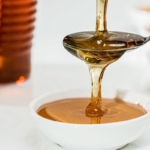What is collagen?
Collagen is a major component to the structure of our connective tissues such as skin, cartilage and bone. There are 29 different types of collagen in the body, with type I being the most abundant. Some of the most important types of collagen include:
Type I Collagen
This type is important for skin elasticity and hydration. It keeps wrinkles in check. It’s a major part of the structure of hair, nails, bones and teeth. This type of collagen makes up most of what is found in collagen derived from bovine or fish sources. It can also be found in egg whites and shells.
Type II Collagen
This type is a major part of cartilage which is an important cushion between bones and spinal disks. Supplements using collagen sourced from chicken will have the most type II collagen.
Type III Collagen
This is the main type of collagen needed for intestinal, muscle, and blood vessel structure. Supplements with type III collagen are usually derived from a bovine source.
Collagen makes up about 30% of proteins within the body and nearly 75% of a person’s skin. To make collagen the body needs the amino acids glycine and proline or hydroxyproline. Using these amino acids, collagen is formed through a series of enzymatic processes called crosslinking. This crosslinking process requires specialized enzymes which require nutrients like vitamin C and copper. With aging, the body becomes less efficient at making collagen which contributes to wrinkling and thinning skin.
Collagen and Your Joints
There are a few studies showing benefit for collagen supplementation improving joint health. Note that you’ll want Type II collagen to see this improvement. One 24-week study performed in 2008, showed improvement of reported joint pain in 97 athletes who used collagen hydrosylate (PMID: 18416885). Researchers of a 2015 double-blind, placebo-controlled study concluded that the group who used collagen peptide supplementation experienced improved pain, stiffness, physical function, and quality of life, while those who received a placebo (no collagen) did not (PMID: 24852756).
How Can I Support My Body’s Own Natural Collagen Production?
Whether you want to make collagen supplementation part of your routine or not, you can make lifestyle choices that help your body make collage naturally. Top lifestyle factors that can decrease collagen production include:
- Excess UV rays damages the structure of collagen in the skin
- Too much sugar consumption which depletes minerals and causes AGEs (advanced glycation end-products, one of the main factors in aging).
- Having high stress which increases cortisol. Cortisol is one of the main hormones released in response to stress and unfortunately, chronically high amounts of cortisol break down collagen and elastin.
- Smoking cigarettes reduces blood flow to organs. Blood carries nutrients and oxygen to tissues and organs, so when blood flow is impaired, collagen can’t be optimally made.
Nutrition is Foundational for Collagen Production
It is important to remember that there are key nutrients involved in the process of making collagen. In order for your body to make collagen, it needs:
- Vitamin C – Good sources of vitamin C include berries, citrus fruits, and bell peppers.
- Zinc – Zinc can be found in foods such as nuts & seeds, beans and lean meats.
- Magnesium – Food sources of magnesium include leafy greens, dark chocolate, nuts & seeds, and whole grains.
- Protein – The body uses the protein you eat and breaks it down into individual building blocks called amino acids. It then uses those amino acids to re-build the proteins it needs such as collagen. Eating adequate protein helps make sure you have enough of the materials needed to maintain healthy body structures and functions.
Consuming foods that are naturally rich in collagen are one way to ensure you get enough of the amino acid building blocks for your body to make collagen. Bone broth is one of our favorite collagen-rich options.
What About Vegans & Vegetarians?
You can support the natural production of collagen without consuming animal products. Focus on getting enough of the nutrients listed above and specifically on the amino acids glycine and proline. Top plant-based sources of glycine include: beans & legumes, spinach, kale, & spirulina. Top plant-based sources of proline include: cabbage, spirulina, spinach, & mushrooms.




